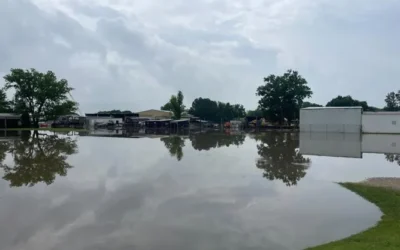The Overarching Significance of the Abraham Accords
The Abraham Accords, established in 2020, marked a pivotal moment in Middle Eastern diplomacy, allowing for the normalization of relations between Israel and several Arab nations. As the geopolitical landscape continues to shift, discussions surrounding these accords extend beyond Israel’s immediate neighbors, venturing into the complexities of Syria and its relations with Israel.
Trump Ally’s Dialogue with Syrian Leadership
Recent developments have seen an ally of former President Donald Trump engaging in conversations with Syrian officials. These discussions primarily center around the lifting of sanctions imposed on Syria due to its ongoing civil conflict and alleged human rights violations. Sanctions have not only hampered Syrian economic recovery but have also influenced the broader dynamics in the region, complicating prospects for peace.
While some GOP lawmakers envision an opportunity for proactive engagement aimed at rebuilding Syria, critics highlight the humanitarian implications of such sanctions. Their stance holds that easing restrictions could facilitate stability within Syria, potentially paving the way for renewed discussions about peace with Israel.
Syria’s Condition for Peace with Israel
Syria’s ambition to establish peace with Israel is a significant point of focus. According to reports, Syrian leadership has signaled a willingness to engage in peace talks, although they emphasize one essential condition: the return of the Golan Heights. The Golan Heights, captured by Israel during the Six-Day War in 1967, remains a contentious issue between the two nations. Syria views its reclamation as a non-negotiable precondition for any potential peace agreement.
This demand complicates the already intricate web of regional diplomacy. While the Abraham Accords have successfully led to normalization with nations like the UAE and Bahrain, the Syrian-Israeli relationship has traditionally been marked by hostility and territorial disputes. The Golan Heights serves not only as a point of territorial contention but also as a symbol of national sovereignty for Syria.
The View from Washington: GOP Lawmaker Insights
In exclusive interviews, some GOP lawmakers have expressed optimism regarding the potential for thawing relations between Syria and Israel. Their stance underscores a growing sentiment that there could be mutual benefits from establishing a working relationship. By fostering dialogues that emphasize reconstruction and rehabilitation in Syria, lawmakers believe they can contribute to enhancing stability in the region.
Key figures within the GOP argue that engaging with Syria rather than isolating it could undermine extremist groups and violent factions that thrive on chaos and instability. This renewed perspective aligns with broader U.S. strategic interests in the Middle East, where stability is tantamount in combating terrorism.
Challenges Ahead: Feasibility of Peace Talks
However, realizing peace between Syria and Israel presents numerous challenges. While Syrian officials express an openness to negotiations, skepticism remains palpable on the Israeli side. Prime Minister Netanyahu, for instance, has consistently articulated a position that demands security guarantees, especially concerning the militant presence in southern Syria and ties to Iran.
Moreover, the internal strife within Syria complicates its ability to negotiate. With a fragmented political landscape, any agreement reached could be undercut by factions within the Syrian government or armed groups. Achieving consensus amidst such instability is a significant hurdle.
The Geopolitical Chessboard: Iran and Russia’s Influence
Another layer of complexity arises from the involvement of external powers, notably Iran and Russia. Both countries exert considerable influence in Syria, complicating any attempts at independent diplomacy from Israel or the U.S. Iran’s military presence in Syria fuels Israeli concerns, while Russia serves as a significant player in negotiating peace between the conflicting factions within Syria.
In this context, U.S. lawmakers advocating for engagement must carefully navigate the regional chessboard. Any overture towards Syria could provoke backlash from Israel or necessitate concessions that may further entwine the U.S. in Middle Eastern entanglements.
Building Towards Reconstruction
With the promise of reconstruction looming, important questions arise around U.S. policy strategies. Lawmakers are contemplating the best approaches to aid in Syria’s recovery without compromising American values regarding human rights and governance.
Many suggest that U.S. aid should be conditional on implementing democratic reforms and respect for human rights within Syria. These stipulations seek to ensure that any rebuilt nation is anchored in stability and legitimacy as opposed to an autocratic regime propped up by foreign aid.
Nevertheless, others caution that destabilizing the Assad regime, even through sanctions, could entail unintended consequences, including deepening humanitarian crises and fueling extremism. A targeted approach that accommodates all stakeholders while advocating for fundamental reforms is essential for creating a sustainable future.
Conclusion: A Delicate Balance
The conversation surrounding the Abraham Accords, Syrian-Israeli relations, and U.S. involvement encapsulates the delicate balance that defines Middle Eastern politics. The narratives weaving through these complexities reflect broader questions about war, peace, sovereignty, and international partnership.
As possibilities for peace emerge, they come fraught with historical grievances, geopolitical tensions, and competing interests. It remains to be seen whether the contours of the Abraham Accords can stretch to encompass Syria and capitulate towards a broader harmony in one of the world’s most volatile regions.
Continued dialogues among U.S. lawmakers, Syrian officials, and Israeli leadership will play a critical role in shaping the paths ahead. The potential for cooperation may lie in recognizing mutual interests, prioritizing regional stability, and ensuring that humanitarian considerations find their rightful place in the discourse.
As this narrative unfolds, it highlights the intricate, challenging, yet essential conversations that lie ahead for the future of the Middle East.







